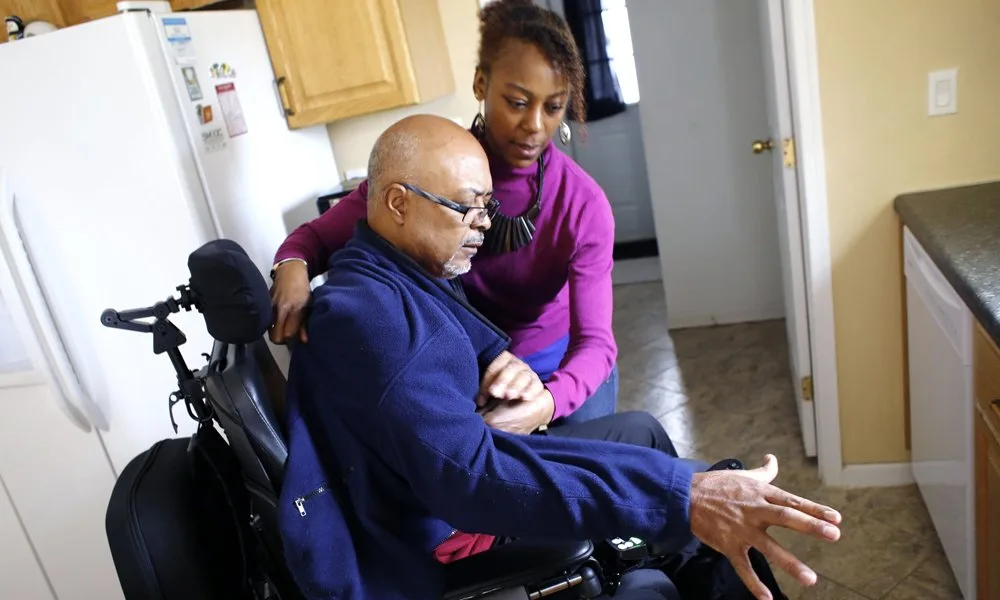February is American Heart Month, so we’d like to raise awareness to an important heart related issue among older women.
The Ticking Time Bomb
Many women are walking around with a ticking time bomb. A significant blockage of their left anterior descending (LAD) artery, also known as the anterior interventricular artery. This is the largest coronary artery and supplies 45-55% of the left ventricle, making it critical for heart function.
A complete blockage of the LAD can cause a “Widow-Maker” heart attack, which is often fatal due to the large area of the heart affected. This type of blockage can lead to sudden cardiac death or severe heart damage if not treated promptly. Only 12% of those who have it – survive.
The problem is, many women aren’t even aware they are having a heart attack. While they can, and sometimes do, experience massive chest pain, it is often much more subtle. Symptoms like fatigue, nausea, heartburn, significant back pain, or even feeling your bra is too tight.
Cynthia Jones is one such example. A few years ago, Cynthia was a 61-year-old living in Florida with an active lifestyle who ate healthfully. She was in her car waiting at a stop light. “A couple of days before the incident, I noticed I had what felt like heartburn and it wouldn’t go away, even after taking Tums,” she says. Jones says that in addition to experiencing what she assumed was heartburn, her back ached. “I took some ibuprofen thinking that my back was hurting because I was sitting at my desk too much,” she says. She decided to go to the emergency room, but wanted to swing by her office first to grab her laptop and work papers. While at the stop light, Jones started to feel nauseated and she lost consciousness. As she lost consciousness, her foot came off the break, causing her to drift into a major intersection. When Jones regained consciousness, she was on the ground with an ambulance on the way.
At the hospital, Jones underwent bloodwork and an EKG. Dr. Imran Farooq, MD, the cardiologist called in to look at Jones’ EKG results and who works with Orlando Health Heart & Vascular Institute, says that Jones’ bloodwork came back normal, but her EKG was a different story. “I told her that her EKG indicated she had a heart attack and I was pretty sure she was having another one right then as we spoke,” Dr. Farooq says.
Further tests showed a 99 percent blockage in one of Jones’ arteries, specifically the anterior descending artery. “This condition is often called ‘widow-maker’ because this artery is the source of much of the heart’s blood flow,” says Dr. Farooq. Jones was immediately taken into surgery, where Dr. Farooq placed a stent and closed the artery.
What Are Some of The Risk Factors That Can Contribute To a Widow-Maker Heart Attack?
In Jones’ case, she believes it was stress related due to her job. “I believe the number one reason why I had this heart attack was stress,” she says.
Other risks can include:
- Sedentary Lifestyle
- High Cholesterol
- High Blood Pressure
- Poor Diet
- Smoking
- Obesity
- Diabetes
- Too much alcohol
- Family History
What Should You Do If You Think You Are At Risk For a Widow-Maker Heart Attack?
See are cardiologist and explain your concerns. He/She will perform a risk assessment and determine what, if any, additional tests should be performed. This can include
- Coronary artery calcium score
- Coronary artery calcium (CAC) screening
- Coronary computed tomography angiography (CTA) testing
- Electrocardiogram (EKG)
- Cardiac genetic testing
Takeaway
The Widow-Maker heart attack is aptly named. The symptoms are often subtle and the outcome disastrous. Heart disease and stroke caused nearly 400,000 deaths among women in 2018, accounting for 28% of all deaths in women.
In addition to seeing your cardiologist if you think you are at risk, see our companion article on how to lower your risk of a heart attack, even if it’s prevalent in your family history.
Source:
‘I Had a Heart Attack Unexpectedly—This Is the One Risk Factor I Didn’t Know I Had’











